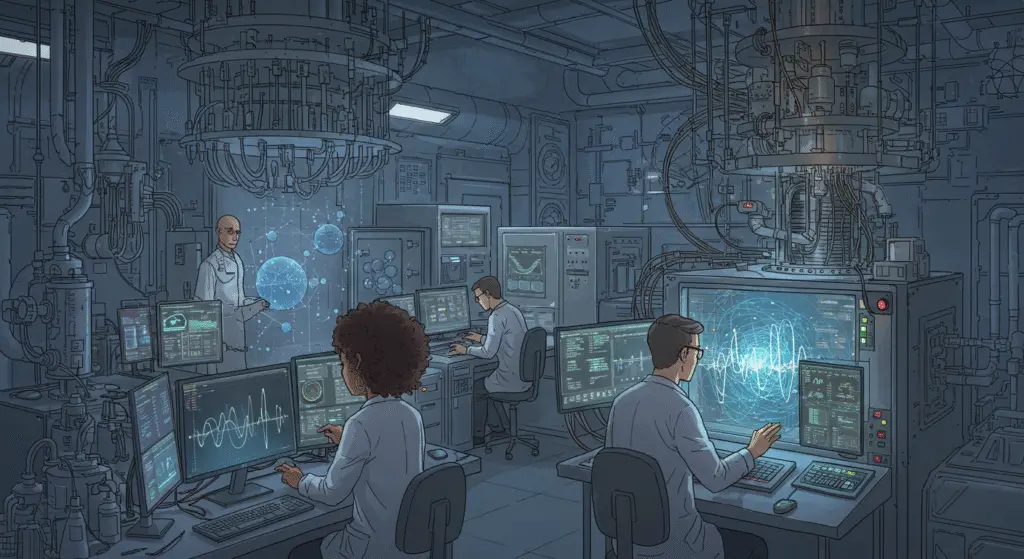Which engineering is most difficult?
Engineering, as a field, is renowned for its intellectual rigor, problem-solving complexity, and the sheer breadth of knowledge and skills required to excel. Across the diverse array of engineering disciplines, from civil and mechanical to electrical and computer science, each specialization presents its own unique set of challenges, demanding the utmost dedication, technical expertise, and analytical prowess from those who choose to pursue them.
Given the inherent difficulty and multifaceted nature of the engineering profession, the question of which discipline is the “most difficult” often arises among aspiring engineers and students exploring their career options. While there is no definitive answer, as the relative difficulty of each field can vary depending on an individual’s aptitudes, interests, and the specific demands of the industry, understanding the key factors that contribute to the complexity of different engineering specializations can provide valuable insights for those navigating the path towards a successful and fulfilling career.
In this comprehensive article, we will delve into the engineering disciplines that are often regarded as the most challenging, examining the core reasons for their perceived difficulty, the unique skills and knowledge required, and the strategies that aspiring engineers can employ to overcome these formidable obstacles and thrive in the face of adversity.
Aerospace Engineering: Soaring Through the Complexity of Flight

Aerospace engineering, the discipline responsible for the design, development, and operation of aircraft, spacecraft, and related systems, is widely recognized as one of the most challenging and intellectually demanding fields within the engineering profession.
At the heart of aerospace engineering lies a deep understanding of a wide range of scientific and technical disciplines, including aerodynamics, fluid mechanics, materials science, and control systems. Aerospace engineers must possess the ability to synthesize this diverse knowledge and apply it to the creation of complex, high-performance systems that must function reliably and safely in the challenging environments of air and space.
The sheer scale and sophistication of modern aerospace projects, combined with the stringent safety and performance requirements, place an immense burden on aerospace engineers to meticulously analyze and optimize every aspect of their designs. From the intricate calculations required to ensure the structural integrity of a spacecraft to the advanced simulations needed to predict the behavior of a hypersonic aircraft, the level of technical complexity and attention to detail demanded in this field is truly remarkable.
Moreover, aerospace engineering often involves the development of cutting-edge technologies, requiring professionals to stay at the forefront of scientific and technological advancements, continuously expanding their knowledge and adapting their skills to address the evolving challenges of the industry.
The high stakes and potentially catastrophic consequences of errors or failures in aerospace engineering further contribute to the perceived difficulty of this discipline, as engineers must navigate a delicate balance between innovation and risk mitigation, all while maintaining a steadfast commitment to safety and reliability.
Electrical Engineering: Harnessing the Power of Electricity

Electrical engineering, the discipline responsible for the generation, transmission, and utilization of electrical energy, is another field that is often regarded as one of the most challenging within the engineering landscape.
The fundamental principles of electrical engineering, such as circuit theory, electromagnetics, and signal processing, are inherently complex, requiring a deep understanding of abstract mathematical concepts and the ability to apply them to the design and analysis of intricate electrical systems.
Moreover, the rapid pace of technological change in the field of electrical engineering, driven by the continuous evolution of electronics, power systems, and communication technologies, demands that professionals maintain a keen awareness of the latest advancements and be willing to constantly adapt their knowledge and skillsets.
The multifaceted nature of electrical engineering, which encompasses everything from the design of microprocessors to the development of large-scale power grids, further adds to the challenge, as professionals must be able to navigate the unique requirements and constraints of a diverse range of applications and industries.
Additionally, the critical importance of electrical systems in modern society, from powering our homes and businesses to enabling global communication networks, places a significant burden on electrical engineers to ensure the reliability, efficiency, and safety of their designs, as the consequences of failures or malfunctions can be severe.
Consequently, the mastery of electrical engineering requires a unique combination of analytical thinking, problem-solving abilities, and a deep commitment to continuous learning and adaptation – qualities that distinguish the most successful professionals in this demanding field.
Quantum Engineering: Delving into the Quantum Realm

As the world continues to make rapid advancements in the field of quantum physics, a new and increasingly important engineering discipline has emerged: quantum engineering.
Quantum engineering, which encompasses the design, development, and implementation of quantum-based technologies, such as quantum computers, quantum sensors, and quantum communication systems, is widely regarded as one of the most complex and challenging engineering specializations.
At the core of quantum engineering lies the fundamental principles of quantum mechanics, a field of study that deals with the behavior of matter and energy at the atomic and subatomic scales. Mastering these principles requires a deep understanding of advanced mathematics, quantum theory, and the ability to apply these concepts to the development of practical, real-world applications.
The inherent complexity and counterintuitive nature of quantum phenomena, such as superposition, entanglement, and quantum tunneling, pose significant challenges for quantum engineers, who must not only comprehend these concepts but also devise innovative solutions that can leverage the unique properties of quantum systems to deliver transformative technological breakthroughs.
Moreover, the experimental and experimental nature of quantum engineering, which often involves the use of highly specialized equipment and meticulously controlled environments, adds an additional layer of complexity to the field, as professionals must possess a keen attention to detail, strong problem-solving skills, and the ability to navigate the technical challenges that arise during the research and development process.
As the quantum revolution continues to unfold, the demand for skilled quantum engineers is expected to grow exponentially, making this field an increasingly attractive, yet formidable, option for aspiring professionals seeking to push the boundaries of human knowledge and technological advancement.
Strategies for Navigating the Challenges of Engineering
Regardless of the specific engineering discipline, the path to success in this demanding field is paved with a unique combination of technical expertise, problem-solving skills, and a steadfast commitment to continuous learning and personal growth.
- Embrace a Strong Foundation in Mathematics and Science:
- A solid understanding of the fundamental principles of mathematics, physics, and other relevant scientific disciplines is essential for success in any engineering field. Aspiring professionals should invest time and effort in mastering these core concepts, as they form the bedrock upon which more specialized knowledge and skills can be built.
- Develop Critical Thinking and Problem-Solving Abilities:
- Engineering, by its very nature, is a problem-solving profession, and the ability to analyze complex challenges, identify key variables, and devise innovative solutions is crucial. Aspiring engineers should cultivate their critical thinking skills, hone their analytical capabilities, and practice applying these skills to a wide range of engineering problems.
- Prioritize Continuous Learning and Adaptation:
- The engineering landscape is constantly evolving, driven by technological advancements, changing industry demands, and the emergence of new challenges. Successful engineers must be willing to continuously expand their knowledge, stay abreast of the latest developments in their field, and adapt their skills to meet the changing needs of the profession.
- Foster Collaborative and Interdisciplinary Mindsets:
- Many of the most complex engineering challenges require the collaboration of professionals from diverse backgrounds and areas of expertise. Aspiring engineers should embrace the value of teamwork, communication, and interdisciplinary collaboration, as these skills can be instrumental in navigating the inherent difficulties of the field.
- Develop a Passion for the Profession:
- Ultimately, the most successful engineers are those who are genuinely passionate about their work and the challenges it presents. By cultivating a deep interest in the field, aspiring professionals can find the motivation and resilience necessary to overcome the obstacles they may face, ultimately leading to a fulfilling and rewarding career.
Conclusion
The engineering profession, in all its diverse and complex manifestations, is undoubtedly one of the most intellectually demanding and challenging fields of endeavor. From the intricate calculations and sophisticated systems of aerospace engineering to the abstract principles and rapid technological changes of electrical and quantum engineering, each discipline presents its own unique set of obstacles that aspiring professionals must navigate with unwavering dedication and skill.
While the question of which engineering field is the “most difficult” may not have a definitive answer, as the relative complexity of each specialization can vary based on individual aptitudes and interests, understanding the core factors that contribute to the perceived difficulty of these disciplines can provide valuable insights for those seeking to embark on a rewarding and impactful engineering career.
By embracing a strong foundation in the fundamental sciences, cultivating critical thinking and problem-solving abilities, prioritizing continuous learning and adaptation, fostering collaborative and interdisciplinary mindsets, and nurturing a genuine passion for the profession, aspiring engineers can position themselves for success, regardless of the specific discipline they choose to pursue.
As the world continues to grapple with increasingly complex challenges, the role of engineers in driving innovation, solving problems, and shaping the future has never been more crucial. By rising to the occasion and embracing the inherent difficulties of the engineering profession, these dedicated professionals can unlock new frontiers of progress, make a lasting impact on the world around them, and leave an indelible mark on the trajectory of human civilization.

Pingback: Which engineering is the most in demand? – worldcivilsociety.com
Pingback: How to Elevate Architectural Vision with Structural Glass: Strategies for Creative and Sustainable Design – worldcivilsociety.com
Pingback: What are the structural properties of glass? A Comprehensive Overview - worldcivilsociety.com
Pingback: What is the most difficult field in civil engineering? - worldcivilsociety.com